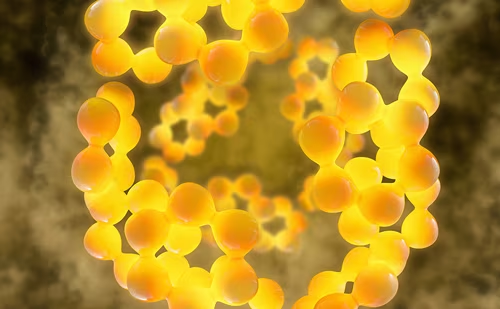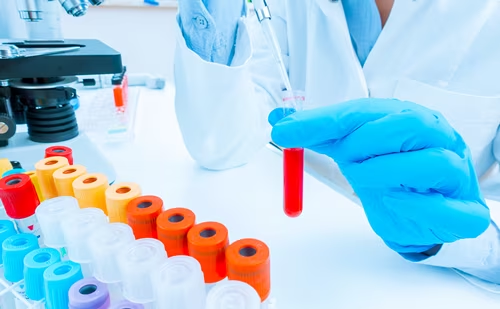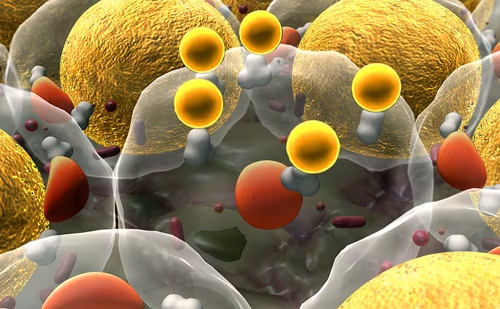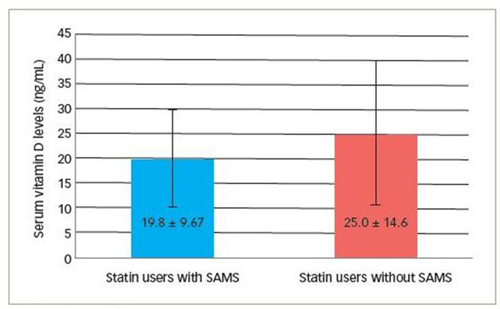Chronic kidney disease (CKD), a condition that affects up to a third of patients who have diabetes, is a major public health problem in the US.1 There is a high level of interindividual variability in the rate of CKD progression, and reasons for this variability are not completely understood. Presence of comorbid conditions, genetic predisposition, and environmental factors may all play important roles in determining the rate of CKD progression. In addition, there has been a great interest in understanding the effects of diet on CKD progression.2
In parallel to the increasing incidence of CKD, there has been an increase in consumption of sugars over the past several years, mainly in the form of sugar-sweetened beverages containing highfructose corn syrup, among them many popular soft drinks, sports drinks, energy drinks, and fruit juices. It was estimated that the consumption of sugar was around 68 kg (150 lb) per person per year in the US in 2003.3 There is substantial evidence that the rise in sugar consumption is contributing to the increasing incidence of obesity, diabetes, and hypertension in the US. However, the direct role of high sugar consumption in the pathogenesis and progression of CKD remains unclear. In this review, we will first assess the relationship between sugar-sweetened beverages and traditional CKD risk factors and hyperuricemia. We will then analyze the available epidemiologic evidence directly examining the association between sugar-sweetened beverages and kidney outcomes.
Sugar-sweetened Beverages and Chronic Kidney Disease Risk Factors
Traditional cardiovascular disease risk factors such as obesity, diabetes, hypertension, and dyslipidemia are associated with the development ofCKD.4 Consumption of sugar-sweetened beverages has been linked to the development of many of these conditions.
Malik and colleagues systematically reviewed medical literature from 1966 to 2005 to test the association between sugar-sweetened beverage consumption and obesity.5 Eight of 15 cross-sectional studies, six of 10 prospective observational studies, and all of five interventional studies selected for the review showed a positive association between the intake of sugar-sweetened beverages and weight gain, with larger studies showing more robust association. In a large prospective cohort analysis of more than 50,000 women in the Nurses’ Health Study II, Schulze and colleagues evaluated the effect of sugar-sweetened beverages on weight gain in 1991– 1995 and 1995–1999.6 During both periods, weight gain was highest among participants who increased their sugar-sweetened beverage consumption from one or fewer drinks per week to one or more drinks per day (4.69 and 4.20 kg for the two periods, respectively) and lowest among participants who decreased their overall sugar-sweetened beverage intake (1.34 and 0.15 kg for the two periods, respectively). Likewise, Palmer and colleagues examined more than 40,000 women in the Black Women’s Health Study and found that participants who increased their intake of sugar-sweetened beverages from one serving or fewer per week to one serving or more per day gained 6.8 kg after six years’ follow-up, compared with 4.1 kg in participants who decreased their intake from one serving or more per day to one serving or fewer per week.7
On top of weight gain, sugar-sweetened beverage intake has been linked to the development of a number of metabolic abnormalities. In a metaanalysis conducted by Malik and colleagues, eight prospective cohort studies that included more than 310,000 participants showed an excess risk for 26 % for the development of type II diabetes in individuals who were in the highest category of sugar-sweetened beverage consumption compared with those in the lowest category.8 Similar to studies evaluating weight gain, results were generally more robust in larger studies having longer follow-up periods. Raben and colleagues investigated the effects of diet high in sucrose versus diet high in artificial sweeteners on fasting and postprandial metabolic profiles in 23 overweight subjects.9 Twelve participants were randomly assigned to sucrose and 11 to artificial sweeteners. After a 10-week follow-up, participants consuming a sucroserich diet were noted as having significant elevations in postprandial glucose, insulin, and lipid levels compared with participants consuming a diet rich in artificial sweeteners. In addition to metabolic abnormalities, sugar consumption has also been linked with changes in blood pressure(BP). In a prospective analysis of 810 adults, a reduction in dietary sugar and sugar-sweetened beverages of one serving per day was associated with a 1.8 mmHg reduction in systolic blood pressure and 1.1 mmHg reduction in diastolic blood pressure over an 18-month follow-up period.10 In a cross-sectional study examining 4,528 adults not having a history of hypertension, intake of more than 2.5 sugary soft drinks per day was independently associated with greater odds of having elevated blood pressure (26 %, 30 %, 77 % increase for BP cutoffs of ≥135/85, ≥140/90, and ≥160/100 mmHg, respectively).11 Thus there is ample evidence that the consumption of sugar-sweetened beverages is associated with a number of CKD risk factors.
Sugar-sweetened Beverages and Uric Acid and Kidney Stones
Consumption of sugar-sweetened beverages containing fructose may lead to the elevation of blood uric acid level (hyperuricemia). Fructoseinduced hyperuricemia has been demonstrated both in animal models and in human studies.12,13 The metabolism of fructose involves depletion of hepatic adenosine triphosphate, which, in turn, increases the degradation of nucleotides while promoting synthesis of uric acid, which leads to hyperuricemia.14 Data from the Third National Health and Nutrition Examination Survey suggested a strong link between regular soda consumption and hyperuricemia.15
It has been postulated that high blood uric acid level can adversely affect kidney function. Johnson and colleagues, as well as Karalius and Shoham, have extensively reviewed the literature evaluating the role of fructose in hyperuricemia and the relationship between hyperuricemia and CKD.3,16 Uric acid level is thought to cause kidney damage via renalvasoconstriction and systemic hypertension.17 In animal models, rats having hyperuricemia were shown to slowly develop progressive kidney disease with kidney vasoconstriction and glomerular hypertension,18 and elevated serum uric acid in animals has been shown to increase the rate of progression of their pre-existing kidney disease.19 Results from human studies have yielded similar results. In a retrospective analysis of more than 6,400 subjects, blood uric acid level was found to be an independent predictor of worsening kidney disease.20 The association between hyperuricemia and progression of kidney disease has been investigated in several cohort studies. In a prospective study conducted by Siu and colleagues, lowering of blood uric acid level with allopurinol treatment in patients having CKD and hyperuricemia resulted in a trend toward lower serum creatinine level in the treatment group after 1 year.21 Similarly, Weiner and colleagues pooled data from two large community cohorts containing more than 13,000 patients and showed that a higher baseline serum uric acid level was significantly associated with increased risk for developing kidney disease during a follow-up of approximately 8 years.22
Additionally, consumption of sugar-sweetened beverages has been linked to an increased risk for developing kidney stones, which is also a risk factor for the development of CKD. Fructose has been shown to increase urinary excretion of calcium, oxalate, and uric acid, all of which contributing to the risk for nephrolithiasis.23 Shuster and colleagues examined more than 1,000 participants having a history of kidney stones and found that abstaining from soft drink consumption showed a 6.4 % decreased risk for stone recurrence over a 3-year period.24 In a large prospective cohort study that examined three distinct patient cohorts, Taylor and Curham established that increased fructose intake was independently associated with an increased incidence of kidney stones.23 In another cohort study that examined more than 190,000 participants, consumption of more than one sugar-sweetened beverage per day was significantly associated with a higher kidney stone risk (23 % higher risk for sugar-sweetened colas; 33 % higher risk for sugar-sweetened noncolas).25
Sugar-sweetened Beverages and Kidney Outcomes
As already discussed, there is substantial evidence suggesting that consumption of sugar-sweetened beverages, particularly those containing fructose, plays an important role in the pathogenesis of CKD risk factors such as obesity, insulin resistance, hypertension, hyperuricemia, and development of kidney stones. However, it remains unclear whether fructose directly plays a similar role in the progression of CKD. This question has been examined in animal studies, with intriguing results. Gersch and colleagues fed rats a specialized diet high in fructose and dextrose for 6 weeks and found increased proteinuria and decreased creatinine clearance in the high-fructose diet group.26 Pathologic examination also revealed higher incidence of glomerular sclerosis, tubular atrophy and dilation, and cellular infiltration in the fructose group compared with the dextrose group. Additionally, because there was no statistical difference in BP between the groups, the increased kidney injury in the fructose group was unlikely to be mediated via effects of hypertension. Authors identified different mechanisms in the pathogenesis of fructose-induced kidney damage, including hyperuricemia, oxidative stress, hemodynamic alterations, inflammation, and lipotoxicity. Pathologic features of kidney hypertrophy, glomerular hypertension, and cortical vasoconstriction were also seen in a similar animal study that examined the effects of high-fructose diet.27
Results from available human studies show more conflicting evidence. To date, five observational studies have examined the effect of fructose, in the form of sugar-sweetened beverages, on CKD progression (see Table 1). Saldana and colleagues performed a case-control study using data from 465 patients with newly diagnosed CKD compared with 467 controls over 2 years. They showed that drinking more than two colas per day was associated with increased risk for CKD, with an odds ratio (OR) of 2.3 (95 % confidence interval [CI] 1.4–3.7). Results were similar for regular colas and artificially sweetened colas, but there was no association between noncola carbonated beverages and risk for CKD. The authors concluded that drinking cola beverages over time likely led to higher levels of phosphoric acid that caused kidney damage via mechanism of nephrocalcinosis.28 This study was not able to explore the association between sugarsweetened beverages and CKD, as significant associations were seen with both sugar-sweetened colas and artificially sweetened colas, and further comparisons between sweetened versus nonsweetened noncola drinks were not made.
Shoham and colleagues performed a larger cross-sectional analysis of more than 9,300 subjects from the National Health and Nutrition Survey from 1999 to 2004.29 Exposure was defined as daily consumption of more than two sugar-sweetened soft drinks. The authors wanted to examine early kidney damage induced by fructose, and the main outcome was presence of albuminuria. This study reported a significant association between sugar-sweetened soft drink consumption and the presence of albuminuria, with an OR of 1.40 (95 % CI 1.13–1.74). Consumption of artificially sweetened drinks was not associated with albuminuria, thus suggesting that the presence of albuminuria is mediated via effects of fructose. Additionally, adjusting for potential confounders, such as hypertension, diabetes, dyslipidemia, and hyperuricemia, did not negate the positive association seen between fructose intake and albuminuria, suggesting that fructose may be nephrotoxic via an independent pathway.
In the first prospective cohort study that examined the relationship between intake of sugar-sweetened beverages and CKD progression, Bomback and colleagues examined the effect of consuming more than one sugar-sweetened beverage per day on kidney outcomes in patients having pre-existent CKD.30 Pre-existing CKD was defined as baseline estimated glomerular filtration rate (GFR) of less than 60 ml/minute. The outcome was decline in estimated GFR or development of albuminuria during the follow-up period. Four hundred and forty-seven participants were followed over a period of 5 years, and significant association was not found between increased sugar-sweetened beverage consumption and decline in estimated GFR or development of albuminuria. Because this study focused on individuals with pre-existing CKD, these results may not apply to a non-CKD population. The authors theorized that the damaging effects of fructose may be limited only to incipient kidney disease and no longer be harmful to kidneys that have already suffered chronic insults.
This study, however, has a number of important limitations. The sample size was relatively small, and the exposure group was only about 10 % of the entire study population (45 of 447 subjects). Also, the exposure of interest was based on participants’ dietary recall, which is prone to bias. Last, the harmful effects of fructose may not be detected with the exposure defined in this study, because previous studies that have yielded significant results have examined higher rates of beverage consumption (more than two beverages daily).28,29 This study identified the need for studies of larger populations having varying degrees of kidney function.
In the largest prospective cohort study to date, Bomback and colleagues performed a cross-sectional and longitudinal study involving more than 15,000 individuals.31 Data was collected during an initial baseline visit and subsequently during three follow-up visits occurring every 3 years over 9 years. Data from the baseline visit constituted the cross-sectional portion of the study. The exposure in this study was defined as consumption of more than one sugar-sweetened beverage daily, and the aim of this study was to elucidate the role of uric acid in the association between sugarsweetened beverage consumption and CKD. Outcomes of the study were detection of hyperuricemia (uric acid level >7.0 mg/dl) or CKD (estimated GFR <60 ml/minute). Unlike the first prospective trial conducted by Bomback and colleagues, more than 95 % of participants in this study did nothave pre-existing CKD at baseline. Analyses from the cross-sectional part of the study showed statistically significant higher odds of hyperuricemia with higher sugar-sweetened beverage consumption, with OR of 1.31 (95 % CI 1.12–1.53). There was a trend toward higher odds of CKD with higher sugar-sweetened beverage consumption, but results were not statistically significant: OR of 1.46 (95 % CI 0.96–2.22). In analyses stratified by uric acid levels, the association between sugar-sweetened beverage consumption and kidney function was shown to be directly related to serum uric acid, suggesting that sugar consumption led to higher uric acid levels and that, in turn, induced kidney damage. However, in longitudinal analyses, there was no association between consumption of sugar-sweetened beverages and development of hyperuricemia or CKD over a 9-year follow-up period. Similarly, consumption of artificially sweetened beverages was also not related to incident hyperuricemia and CKD. Despite the large sample size, this study had many limitations. For the follow-up component, it was not reported whether soda consumption was consistent over time, and consumption behavior could have changed during the follow-up period, exposing the study to measurement bias. As with the first prospective study, the exposure of more than one beverage daily in this study is less than the exposure studied in earlier studies that yielded significant results.28,29 This study also did not provide information on antihypertensive medications that might have been important confounders and that might also have affected serum uric acid level. Bomback and colleagues and other reviewers caution readers to not interpret the “negative” study as dismissing the effects of sugar-sweetened beverages on hyperuricemia and CKD.31,32 Indeed, these relationships remain uncertain, and more longterm studies are needed.
In a subsequent observational cohort study, Lin and Curhan identified more than 3,200 individuals from the Nurse’s Health Study and examined the relationship between consumption of sugar-sweetened beverages and decline in renal function over 11 years.33 Main exposure in this study was the consumption of more than one sugar-sweetened beverage daily. The outcome was a more than 30 % change in estimated GFR or development of microalbuminuria. No association was seen between higher consumption of sugar-sweetened beverages and decline in estimated GFR or development of microalbuminuria. Interestingly, consumption of more than two artificially sweetened beverage daily was found to be significantly associated with decline in estimated GFR, OR 2.02 (95 % CI 1.36–3.01). This result with artificial sweeteners was not consistent with prior observational studies.28,29,31 Authors noted that a higher consumption of diet soda may be a marker of unmeasured risk factors that resulted in a higher risk for kidney decline for women consuming artificial sweeteners.33 Another limitation of this study was the small proportion of participants having high sugar-sweetened beverage consumption (∼3 % of the study population), so a definite association between sugar intake and kidney outcomes could not be established. As with earlier prospective studies, the exposure to more than one sugarsweetened beverage daily was lower than what had been examined in previous studies that yielded significant results.28,29 Cheungpasitporn and colleagues performed a meta-analysis combining data from four of the five observational studies described above.34 The pooled relative risk (RR) for CKD in individuals having high consumption of sugar-sweetened beverages was significant higher than those having lower consumption, with RR of 1.58 (95 % CI 1.00–2.49). Effect of artificial sweeteners was also examined, and though there was a trend toward increased risk for CKD, the results were not statistically significant with RR 1.33 (95 % CI 0.82–2.15). Results of this meta-analysis suggest that an increased sample size of the exposure group can potentially improve the power to detect significant association between sugar-sweetened beverageconsumption and CKD progression.
Conclusion
The increase in consumption of sugar-sweetened beverages, especially ones containing high-fructose corn syrup, has been suspected as a contributing factor in the epidemics of obesity, diabetes, and hypertension in the US. Because diabetes and hypertension are importantrisk factors for the development of CKD, there has been a great interest in examining whether the consumption of beverages sweetened with fructose can also cause kidney damage and accelerate CKD progression. Even though fructose consumption increases uric acid levels and has been shown to have kidney-damaging effects in animal studies, results from human epidemiologic studies are still not conclusive. To date, no clinical trial has been performed to address this topic. It is interesting to note that participants in the exposure group in studies that did not show positive association consumed fewer sugar-sweetened beverages than participants in two studies that showed a positive association (more than one beverage daily versus more than two beverages daily). This suggests that there might be a dose-dependent response between fructose consumption and kidney damage. Thus, even if the evidence linking fructose and CKD is still not definitive, it would be advisable to counsel individuals who have CKD or those at risk for CKD to limit their intake of sugar-sweetened beverages considering the known detrimental effects of fructose on CKD risk factors and hyperuricemia.











